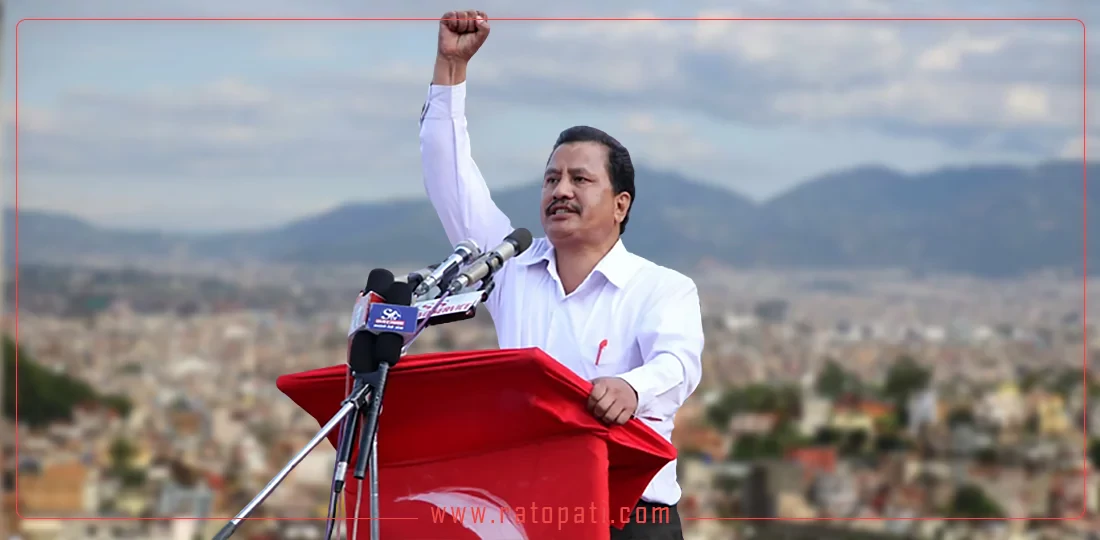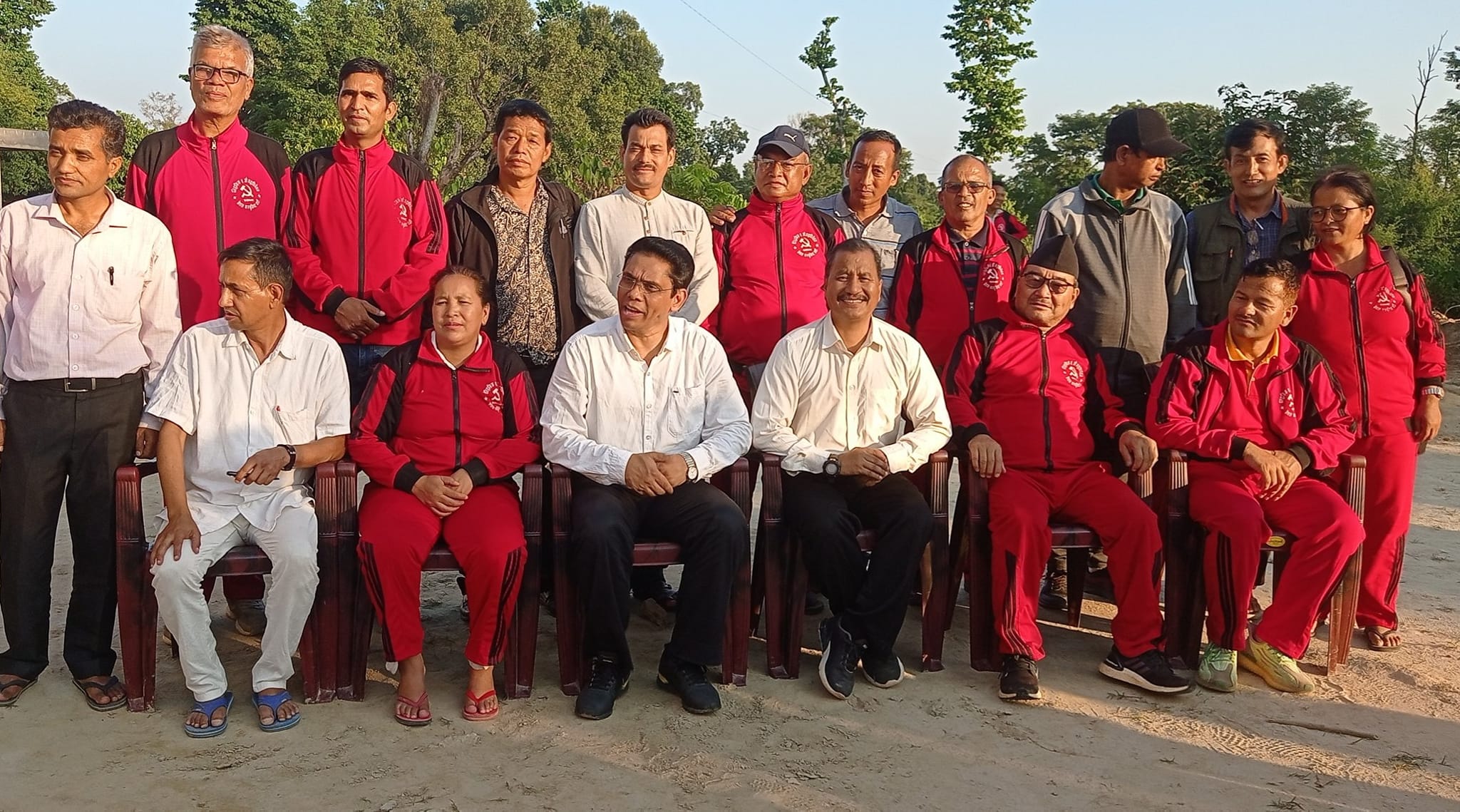Why does Biplav put 'C' after his name?

Kathmandu: Members of the Nepal Communist Party led by Netra Vikram Chand 'Biplav' have adopted the practice of adding 'C' after their names.
General Secretary Biplav himself has replaced his surname (Chand) with 'C'. Spokesman Khadga Bahadur Bishwakarma has also followed suit. Additionally, standing committee members, central members, and district committee members are increasingly adopting this practice.
On Thursday, the youth wing of the CPN, Yuwa Sangathan Nepal, submitted a memorandum to Prime Minister Pushpa Kamal Dahal "Prachanda," urging legal recognition for the "C" designation. The memorandum, bearing five lakh signatures, was submitted to Prachanda at his residence in Baluwatar. The signatures were collected during a nationwide campaign held from May 28 to June 02.
Upon receiving the memorandum, Prime Minister Prachanda expressed support for the idea of establishing a 'C' designation with legal recognition as part of efforts to abolish the caste system. He noted that achieving this goal would require amending existing laws and urged unity in moving forward.

What does 'C' signify, and why is it being used?
During the ninth convention held in Shivagadhi of Kapilvastu in October 2022, General Secretary Biplav proposed a new approach to address the caste system among various political and organizational proposals. Santosh Budha Magar, a Standing Committee member, recalled that the proposal included removing surnames and adding 'C' after the name.
Biplav's intention behind this proposal was to emphasize unity among Communist Party members in striving for a casteless society and a global human community. The decision to name this new designation 'C' was influenced by its connection to communism, with 'C' representing the first letter of communism or the third letter of the English alphabet, rather than being derived from a dictionary or a specific caste.
The party's ninth plenum approved the adoption of 'C'. A circular issued during the second meeting of the Central Committee encouraged members to add 'C' after their surnames, making it optional initially. However, during the third meeting, it was made mandatory for the party rank and file upto the members of the district committee.
Santosh Budha Magar said, "Implementing this new designation was initially challenging but has since become routine. It symbolizes a commitment to creating a unified human society and rejecting divisions and discrimination." He emphasized that 'C' defines a group of individuals striving for equality and communism, rather than denoting a separate caste.
He highlighted that Karl Marx founded the Communist Party to combat class, caste, and social inequalities within society. Before the adoption of 'C', communist beliefs were upheld while retaining individual caste identities. The emergence of 'C' stemmed from discussions on where to begin the process of social transformation.
Although 'C' has gained political recognition, there are challenges in obtaining legal recognition. Budha Magar noted that various proposals were considered during the convention, but 'C' was chosen unanimously due to its association with communism, socialism, and its suitability as a symbol of unity among party members.










Leave Comment